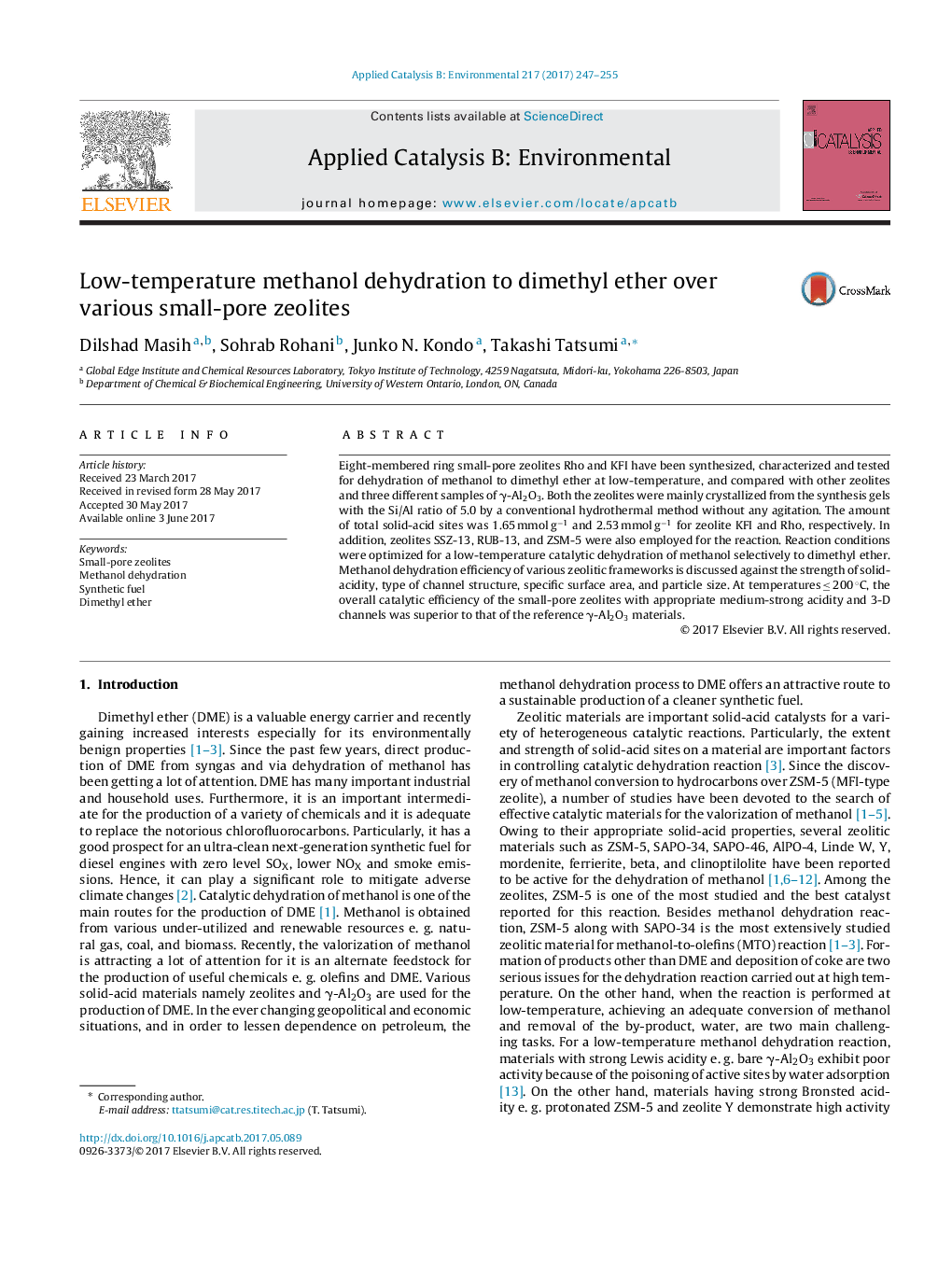| Article ID | Journal | Published Year | Pages | File Type |
|---|---|---|---|---|
| 6453950 | Applied Catalysis B: Environmental | 2017 | 9 Pages |
â¢Small-pore 3-D zeolites are highly effective for catalytic dehydration of methanol to DME at low-temperature (â¤200 °C).â¢Rho, KFI, and SSZ-13 demonstrated a thermodynamically limited methanol conversion (â¼93%) with 100% selectively to DME.â¢Catalytic performance of the small-pore 3-D zeolites is far better than that of the commercial catalyst, γ-Al2O3.â¢Methanol dehydration efficiency is nicely correlated against the solid-acid properties of the applied catalyst materials.
Eight-membered ring small-pore zeolites Rho and KFI have been synthesized, characterized and tested for dehydration of methanol to dimethyl ether at low-temperature, and compared with other zeolites and three different samples of γ-Al2O3. Both the zeolites were mainly crystallized from the synthesis gels with the Si/Al ratio of 5.0 by a conventional hydrothermal method without any agitation. The amount of total solid-acid sites was 1.65 mmol gâ1 and 2.53 mmol gâ1 for zeolite KFI and Rho, respectively. In addition, zeolites SSZ-13, RUB-13, and ZSM-5 were also employed for the reaction. Reaction conditions were optimized for a low-temperature catalytic dehydration of methanol selectively to dimethyl ether. Methanol dehydration efficiency of various zeolitic frameworks is discussed against the strength of solid-acidity, type of channel structure, specific surface area, and particle size. At temperatures â¤Â 200 °C, the overall catalytic efficiency of the small-pore zeolites with appropriate medium-strong acidity and 3-D channels was superior to that of the reference γ-Al2O3 materials.
Graphical abstractDownload high-res image (180KB)Download full-size image
